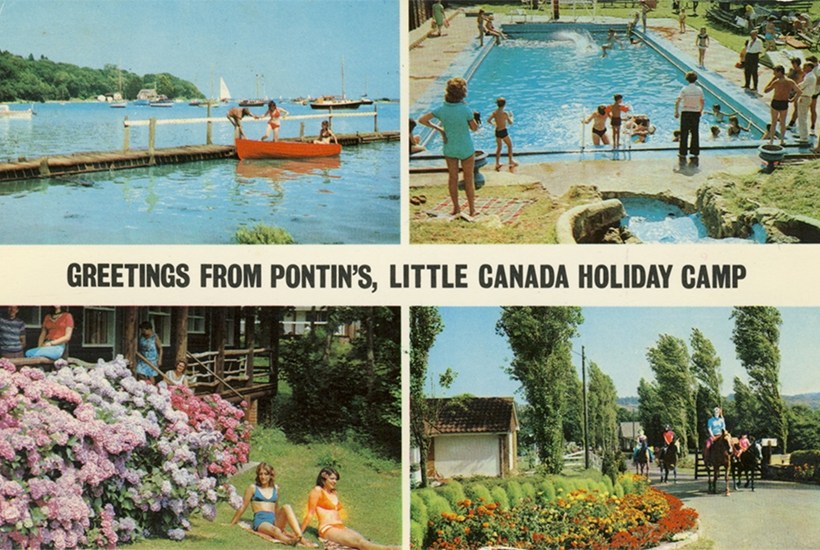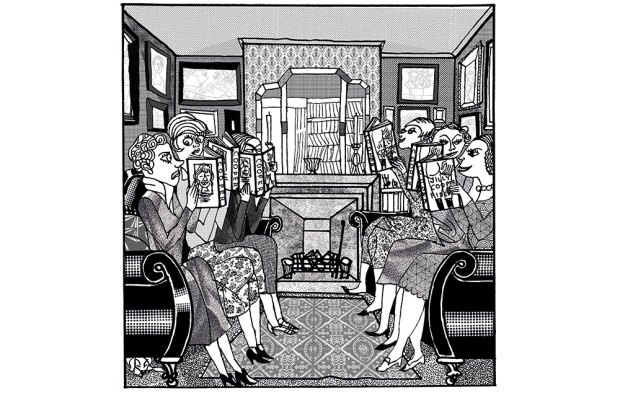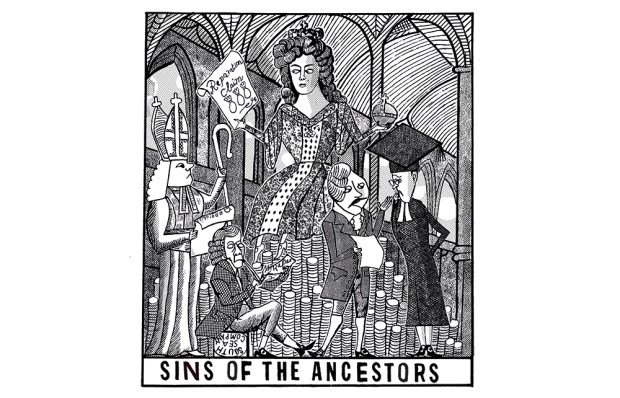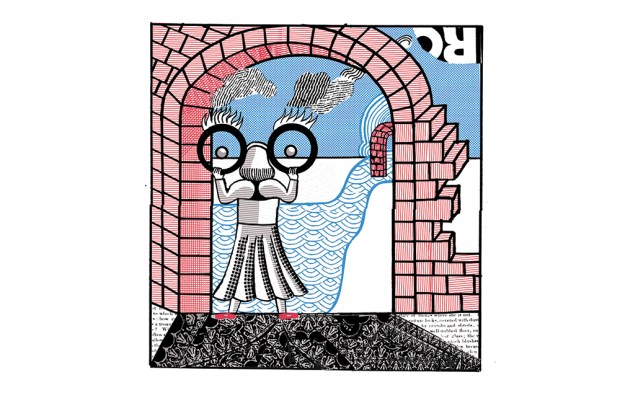Oh curses, one less option for the summer holidays. Pontins, the holiday camp for those who don’t mind bringing their own cleaning products, has been exposed for issuing a list of surnames belonging to ‘undesirable guests’. Under the legend ‘You Shall Not Pass’ on the company intranet was an instruction: ‘Please be aware that several guests are not welcome at Pontins, however some of these will still try and book… We have been informed by our Operations Director that we do not want these guests on our parks. Please watch out for the following names on ANY bookings.’
There follows a list of 40. There are the O’Briens, the O’Donnells and O’Connells, the Carneys and the Lees, the Leahys, the Sheridans and the Wards. And, you’ve guessed it, the McDonaghs. Now, let’s pass over the thought that Pontins may be missing out on the patronage of the former governor of the Bank of England and the former CEO of Tesco. The list comprises Irish names. If they were names of Muslim heritage… well, you tell me how that would have worked out. The Equalities and Human Rights Commission observed that by declining to provide its services to guests of a certain race or ethnic group, Pontins was ‘directly discriminating on the basis of race’ and breached the UK’s 2010 Equality Act. It has investigated the matter and reached an agreement with the company.
As it was, the story was treated with mild bemusement, though the Irish in Britain took a dim view — back to no blacks or Irish, eh? And what every Irish person looking at the list instantly discerned was that the target group was not so much Irish as traveller. So, along with having a life expectancy way less than that of the general population in Britain and Ireland — half die before the age of 40 and 70 per cent don’t live beyond 60 — travellers have this extra cross to bear: not being able to holiday at Pontins.
But as Pontins discovered, if you’re trying to identify travellers, their names are shared with lots of other Irish who would take quite a huff if they were identified thus. One of the few names which is unambiguously traveller is, in fact, McDonagh. Our lot are practically hereditary Kings of the Tinkers. An Irish friend observed that where she came from, you’d be afraid to look at the McDonaghs, they were so willing to get in a fight. When I used to meet the former Irish ambassador Bobby McDonagh at embassy parties, the joke was that he’d take me to the Travellers’ Club. My father, I should say, was adopted, and his adopted family were sailors, not travellers, but still, I take every opportunity to piggyback on the family name.
What do the words ‘traveller’ or ‘tinker’ conjure up? Campsites strewn with rubbish? Thefts? Drunkenness? Fights? Horse–trading (literal)? Close-knit communities? Yep, all of that. More recently there was an ugly scandal where travellers were involved with modern slavery. But travellers have faced persecution in Britain and Ireland for decades. Before Ireland had ethnic minorities of colour, it had travellers, and they were and still are treated badly. There’s a tendency in Britain to call travellers ‘gypsies’, but this is to confuse an Irish group with Roma. The Roma have their own language and customs, and also travel from place to place and are at the bottom of every social pile.
If you go back a couple of generations, tinkers, as they were, had useful roles as small-scale metal workers, who’d turn a tin can into a mug in a matter of seconds. They really did travel in horse-drawn caravans. In the worst of the Troubles, they’d pass freely across the border because loyalists and republicans knew better than to interfere with them. That’s all changed. Nowadays, as in Britain, most Irish travellers are settled — perhaps in modern or static caravans rather than houses. There are occasions though when travellers come together, not least at mass funerals, or at horse fairs.
And yes, travellers still have a reputation for having fights in pubs, with cash sometimes handed over to the owner in advance to account for breakages. As one comedian put it: ‘What do travellers and cigarettes have in common? They come in packs of 20, the government warns you against them and they’re banned out of every pub in Ireland.’ That is a gag from Martin Beanz Warde, who is the best-known, or possibly the only, traveller stand-up comedian. He is both traveller and gay, which is, to put it mildly, an unusual combination. Warde is regularly refused gigs because venues are unaccountably booked until 2027, with venue owners saying, quite unfairly: ‘He’ll bring a crowd of travellers with him who’ll smash the place up.’
In an Ireland which is secularised and no longer socially conservative, travellers are possibly the last group who take religion and churchgoing seriously and prefer to marry before having children. Girls marry young. There’s a certain reserve about homosexuality. The boxer Tyson Fury (arguably the best-known traveller) got a lynching from pundits when he expressed some of these views after he first became famous. He now refuses to discuss religion in interviews.
Travellers, in fact, have a really rough time. There’s a disproportionately high rate of traveller suicides, especially among young men. Life expectancy is way less than that of the settled population in Ireland and Britain: the figures I mentioned earlier are based on a 2007 study of Irish travellers, but what’s true of Ireland is broadly true of Britain.
The past year has been particularly difficult, with one study in Ireland showing that 10 per cent of the 35,000-strong traveller community had contracted Covid since March, an official incidence rate well over twice that of the wider population. Overcrowded housing, poor health and lack of education were blamed for the high rates. Some travellers are illiterate and their children often don’t have access to laptops or internet, which has put them at even more of a disadvantage this year.
I put it to you that if this were a BAME community, we’d never hear the end of it. But because travellers are familiar, white, not-woke, seen as trouble and don’t complain, the usual activists and consciousness raisers don’t rally round. The Pontins mentality goes beyond holiday camps. Traveller Lives Matter, anyone?
Got something to add? Join the discussion and comment below.
Get 10 issues for just $10
Subscribe to The Spectator Australia today for the next 10 magazine issues, plus full online access, for just $10.
You might disagree with half of it, but you’ll enjoy reading all of it. Try your first month for free, then just $2 a week for the remainder of your first year.














Comments
Don't miss out
Join the conversation with other Spectator Australia readers. Subscribe to leave a comment.
SUBSCRIBEAlready a subscriber? Log in